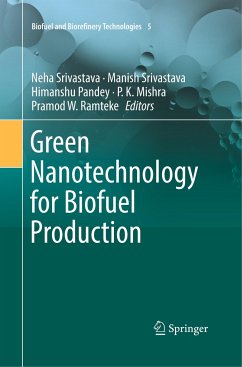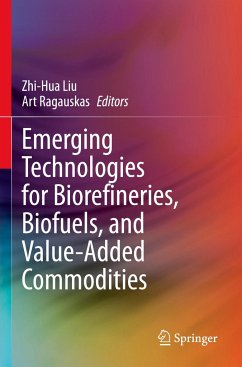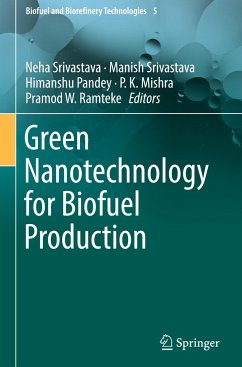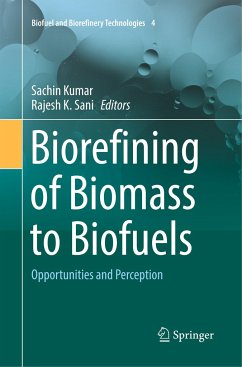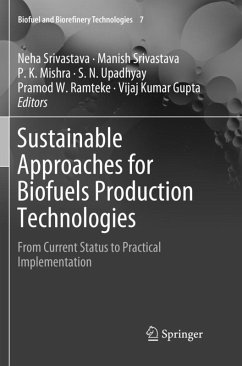
Microbiology of Ethanol Fermentation in Sugarcane Biofuels
Fundamentals, Advances, and Perspectives
Versandkostenfrei!
Versandfertig in 6-10 Tagen
91,99 €
inkl. MwSt.
Weitere Ausgaben:

PAYBACK Punkte
46 °P sammeln!
This book discusses the microbiology of fermentation for the production of bioethanol from sugarcane. Coverage includes how selected yeasts improve ethanol yield and productivity concerning recent advances at genomic, transcriptomic, and proteomic levels, how microorganisms (bacteria and yeasts) interact with each other in fermentation vats, and the application of microbiological monitoring methods with safety and precision. Special attention is given to antimicrobial strategies used to decrease contamination. The book is aimed at professionals working in the bioethanol industry, as well as st...
This book discusses the microbiology of fermentation for the production of bioethanol from sugarcane. Coverage includes how selected yeasts improve ethanol yield and productivity concerning recent advances at genomic, transcriptomic, and proteomic levels, how microorganisms (bacteria and yeasts) interact with each other in fermentation vats, and the application of microbiological monitoring methods with safety and precision. Special attention is given to antimicrobial strategies used to decrease contamination. The book is aimed at professionals working in the bioethanol industry, as well as students and researchers studying biological and biotechnological aspects of applied matters such as industrial microbiology and industrial fermentations.
The English translation of this book from its Portuguese original manuscript was done with the help of artificial intelligence (machine translation by the service provider DeepL.com). A subsequent human revision of the content was done bythe author.
Covers common microbiological monitoring techniques;Reviews selected yeasts used in the bioethanol industry;Examines the role of bacteria and native yeasts in ethanolic fermentation and methods to control their growth.
The English translation of this book from its Portuguese original manuscript was done with the help of artificial intelligence (machine translation by the service provider DeepL.com). A subsequent human revision of the content was done bythe author.
Covers common microbiological monitoring techniques;Reviews selected yeasts used in the bioethanol industry;Examines the role of bacteria and native yeasts in ethanolic fermentation and methods to control their growth.




